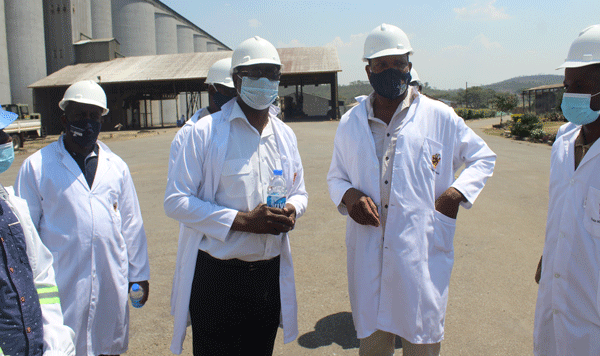
The Grain Marketing Board (GMB), the country’s leading grain trade and marketing company, was established in 1931 as the Maize Control Board.
Its responsibility was to accord local maize producers their fair share of the local and export markets and also to provide them with a guaranteed outlet for their excess maize produced.
The establishment of the Board was also to ensure the availability of adequate supplies of maize for the local demand either from internal production or from exports.
Renamed Grain Marketing Board in 1951 under the Grain Marketing Act [Chapter 18:14], its responsibilities remained fundamentally unchanged although many commodities in addition to maize were added under the control of the GMB.
In 1996, through what was known as the Debt Take-Over Agreement, the GMB was modified from being fundamentally a developmental or social institution to include being a commercially-oriented commodity trading organisation.
This saw the organisation introducing milling projects, third-party storage and commercial fumigation among others.
The government, however, through a Cabinet resolution in May 2018, directed that all commercial activities of the GMB be separated from its core Strategic Grain Reserve (SGR) functions.
The demerger of the GMB created two entities, namely the SGR and Silo Food Industries, which assumed value addition of grains commercially.
- Chamisa under fire over US$120K donation
- Mavhunga puts DeMbare into Chibuku quarterfinals
- Pension funds bet on Cabora Bassa oilfields
- Councils defy govt fire tender directive
Keep Reading
Functions of the Board
- To ensure the orderly marketing of agricultural products
- To do all things necessary and consistent with the provisions of the Grain Marketing Act [Chapter 18:14] in ensuring orderly marketing of controlled products within any prescribed area.
- To provide efficient service to the farmers and pay them timeously for their delivered grain
- To buy and sell any grain which is delivered to or acquired by it
- To buy and sell grains and oil seeds
- To provide storage and handling facilities for grains and oilseeds
- To maintain Strategic Grain Reserves (SGR)
- Import and export grains as it may consider necessary
- To provide fumigation, product quality control services and commercial training in grain handling
- To store and distribute farming inputs under the Presidential Well-wishers Inputs Programme and Command Agriculture Inputs Programme.
- To facilitate distribution of grain to vulnerable groups under social welfare programmes.
With a vision to be a centre of excellence in grain management by 2030 and a mission to ensure food security through the efficient and sustainable management of the Strategic Grain Service, GMB’s most priced value is team work.
This is achieved by shared vision, unity of purpose and action in achieving desired results and mutual interdependence as one GMB family.
Another core value is innovation which is achieved through creating new ideas, embracing continuous improvement in people, process and systems delivered through responsible creative solutions and technology for growth.
Services
The GMB provides grain storage for all types of grain throughout the country.
Storage capacity: 2 500 000 tonnes
Silo grain storage: 12 depots
Bulk produce can be stored in silo complexes which have a total storage capacity of 736 000 tonnes
Stacking and sheds: 1 559 624 tonnes
Bagged produce storage at all other depots on hard stands in stacks and in sheds
Fumigation Services
The Grain Marketing Board offers client fumigation as a commercial service. The main area of use of fumigation lies in the control of insects, their eggs, larvae and pupae in the stored produce.
As the fumigants are highly toxic to mammals, treatment also has a useful side effect on rodents.
This also means, however, that fumigants are extremely toxic to humans and that, therefore, fumigation is only allowed to be carried out by well-trained staff. If correctly applied, fumigants are entirely successful.
The tiny gas molecules easily penetrate large stacks right into the individual grains, reaching and killing all stages of development of the pests.
Grading and sampling
The Grain Marketing Board provides grading services to producers for their products.










